Intuitive Eating for Teens
- October 10, 2023
- Last Updated: March 20, 2024
- 0 Comments
- Intuitive Eating
The teenage years can be daunting for a number of reasons, and intuitive eating for teens can make a big difference in overall lifestyle.

As an Amazon Associate, I may earn from qualifying purchases. You can read more here on our Disclaimer and Privacy Page.
You may be wondering, how does intuitive eating apply to teens?
]Well, not only do teenagers crave independence, but they are also highly influenced by their peers.
The pressure to be thin is all around them. So how can we be sure our kids have a healthy relationship with food?
Today, we’re talking about intuitive eating for teens and how you, as a parent, can support that.
What is Intuitive Eating?
Let’s start with the basics and explain what the 10 intuitive eating principles actually are.
Intuitive eating is a mind-and-body approach that focuses on your body’s cues for hunger and fullness, rather than external cues, like time, calories left for the day, or the pursuit of weight loss.
Through the intuitive eating way of eating, you learn to trust your body and make peace with food, which is very important in childhood and the teenage years.
So can kids eat intuitively? Absolutely! Setting the stage for intuitive eating for kids is monumental.
We are all born to be intuitive eaters. Just observe an infant or toddler for a day.
They eat when they are hungry, and stop when they are full.
Even if it seems like it’s not enough, too infrequent, or continuous eating, their bodies regulate their food intake so they can grow appropriately.
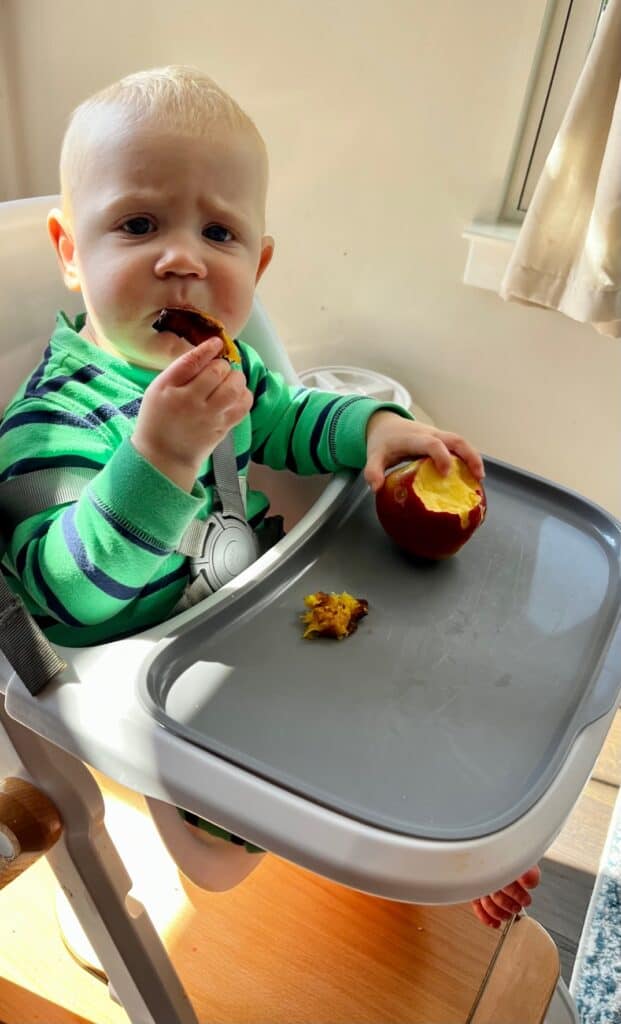
It’s usually during the childhood years that adults come and mess things up for growing kids, and ourselves.
However, impacting kids’ eating actually starts when they are babies.
Who doesn’t like the idea of feeding your baby on a set schedule? Rather than observing their cues, we may save meals for certain times.
And, as they get older, we may inadvertently act as the food police, limiting “bad” foods and forcing them to eat “good” foods.
By the time kids are teenagers, they have been exposed to many messages about dieting, and have likely started to develop their own beliefs about food.
They may even start to feel confused about the mixed messages, feeling like they don’t know what to eat.

I am often recommending the intuitive eating workbook for teens for many of my younger clients.
From another angle, there is also the social media pressure to look a certain way.
Perhaps, teens have even observed your own struggles with intuitive eating vs. dieting, or have started dieting themselves.
Benefits of Intuitive Eating for Teens
As an intuitive eating dietitian and mom to three older kids, I certainly understand the importance of intuitive eating for teens.
My only daughter is 15, and I’ve raised her to be an intuitive eater and I couldn’t be happier about that.

But I hear about her friends dieting and complaining about their body image and it breaks my heart to see the mental turmoil start so early.
I want to offer hope to those of you who are new to intuitive eating. Don’t worry!
It’s not too late for your teen to become an intuitive eater.
There are multiple long-term benefits to intuitive eating, so let’s review some.
Grab Our Meal Prep Ebook to Finally Conquer Meal Prep in the Kitchen
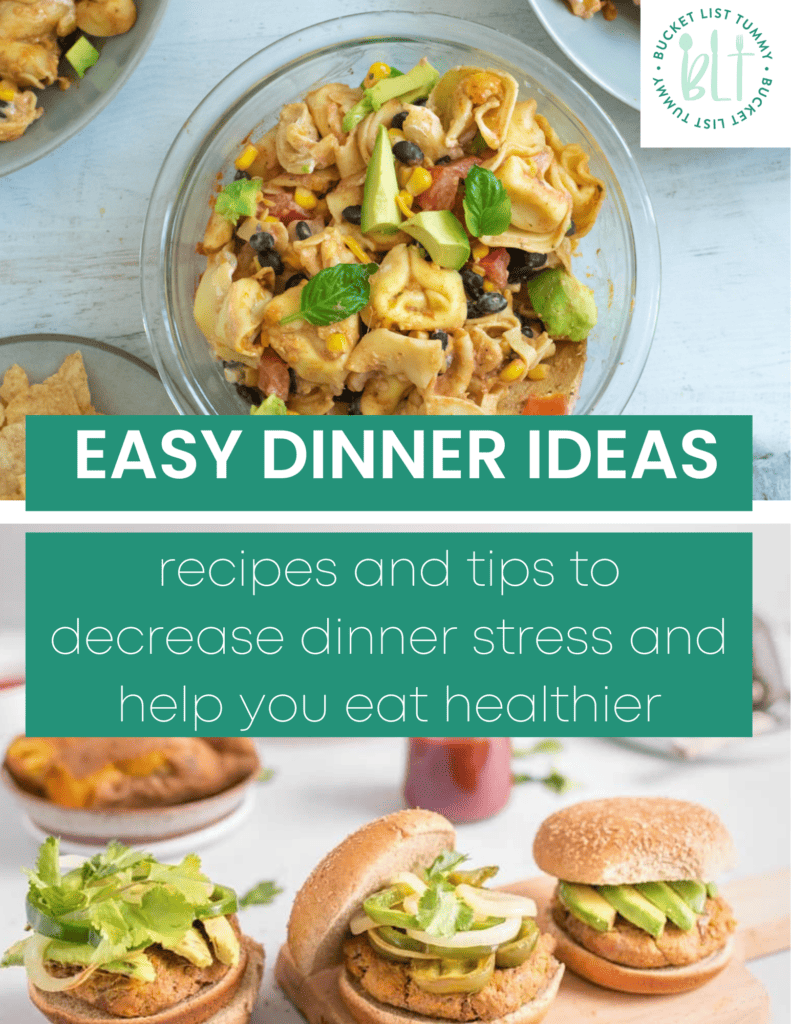
Less Likely to Engage in Dieting and Weight-Control Behaviors
In this study of young adults, both male and female intuitive eaters were less likely to be overweight, and engage in dieting or other unhealthy weight-control behaviors (i.e., skipping meals, fasting).
They were also less likely to binge eat when compared to non-intuitive eaters.

Unfortunately, the teenage years are often when disordered eating develops. Sadly, adolescents sometimes endure bullying for their body sizes.
And between hormonal changes, the desire to be thin, and mixed messages about food, teens are vulnerable.
Better Self-Acceptance and Respect for Body
Studies suggest that adolescents who eat intuitively are less likely to develop an eating disorder.
Eating disorders are all-consuming and deadly. No one wants to set their child up for one.
Intuitive eating involves self-acceptance and respect for your body.

Mental Health Benefits
Did you know that intuitive eating is also good for our mental health?
It is!
People who eat intuitively are more likely to have a positive body image, better self-esteem, and overall improved well-being.
As dietitians, we know that the way we eat impacts our mood.
It makes sense, right? Anyone who has ever dieted can relate.
When our children and teenagers eat intuitively, we’re setting them up for better mental health now and in the future.
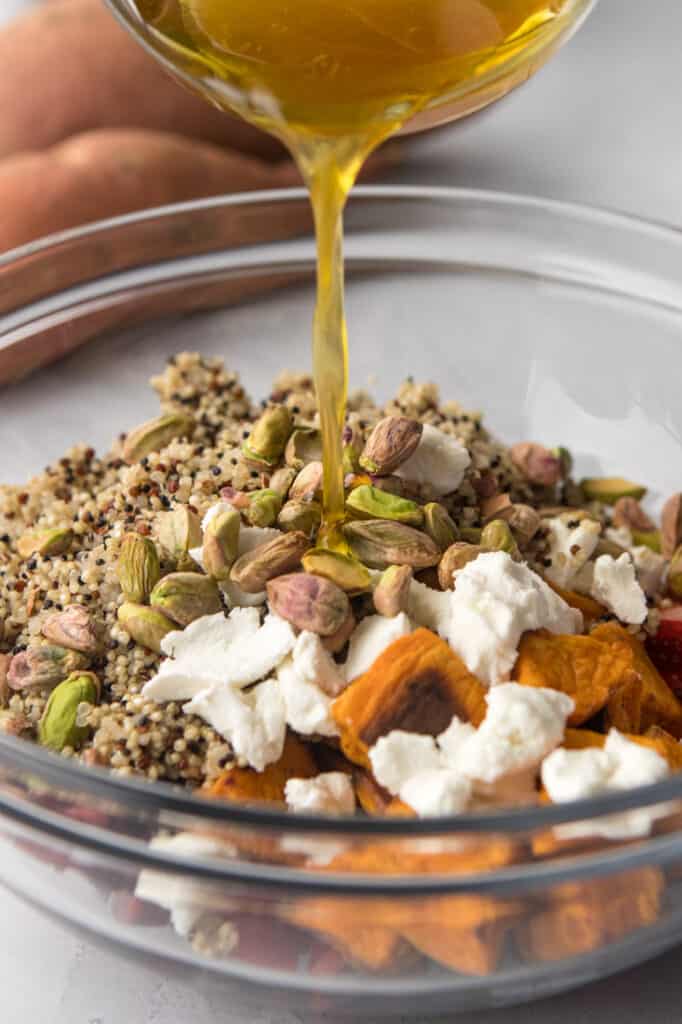
Gentle Nutrition
Maybe you’re worried that all your teen will eat is Flamin’ Hot Cheetos if they are given the freedom to choose their food.
I assure you that is not the case.
Actually, foods lose their appeal when we have the ability to eat them whenever we want. Our hyperfocus on them diminishes when we are well-fueled.
It’s actually been shown that intuitive eating may improve diet quality.
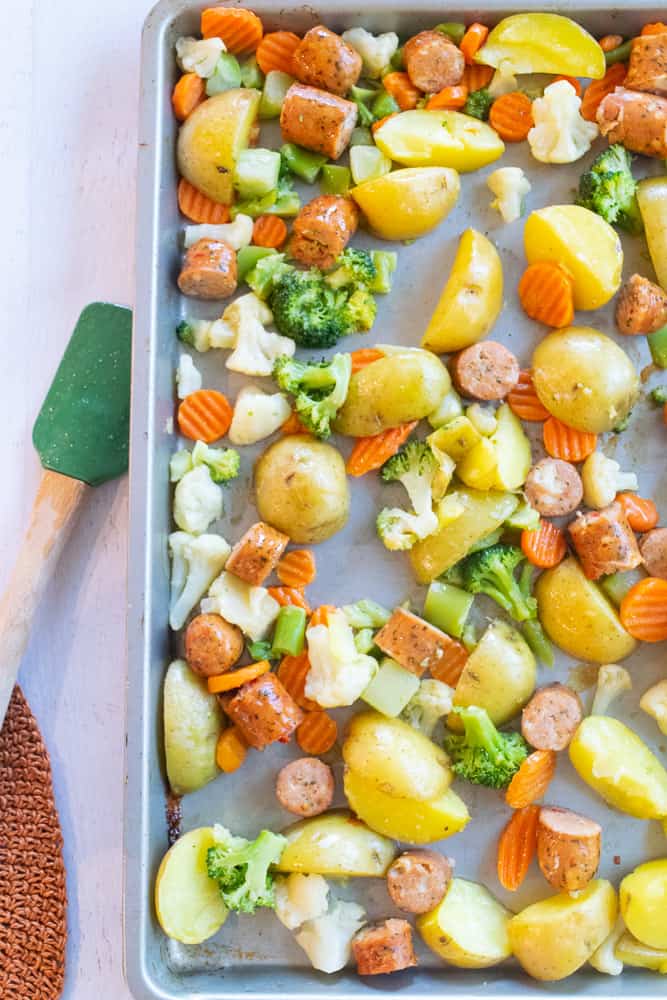
So you don’t have to “make” them eat a certain way.
And anyone with a teen knows this is impossible anyway. Just have a wide variety of foods available. You shouldn’t need to force kids to eat vegetables.
Fruits and vegetables are always available, and I continue to serve them.
But if they don’t want to eat them, they don’t have to. Thave have autonomy over their food choices.
Gentle nutrition means that we do want to eat nutrient-dense foods, and we often feel better when we do.

As a dietitian, there are few greater wins in life than when your child chooses to eat something packed with nutrients!
But, I’m careful not to bring too much attention to it. I don’t want my kids to assign moral value to the foods they eat.
Figuring out nutrition for teenage athletes also requires alot of gentle nutrition, since there are many times they may need to eat more, outside of hunger, to fuel or re-fuel.
How to Start Intuitive Eating with Teenagers
Here are some tips that you can model for your teenagers to help improve their relationships with food.
- Stop dieting yourself: This may be easier said than done, but if you want to improve your child’s relationship with food, you need to start with your own. Research shows us that when a mother diets, they are more likely to interfere with their child’s self-regulation of food. This can lead to restriction of food, emotional and binge eating, and hiding food. You can work with an intuitive eating counselor to heal your relationship with food.
- Check your diet talk: It will take time to change the way you talk about food. Especially if you have a long history of dieting. Watch the comments you make when eating. Be careful not to mention that anything is unhealthy vs. healthy, good vs. bad, high-carb vs. low-carb, etc. No “treats” for good behavior. Food is food. That’s it. No moral judgment is assigned to any food.
- Throw out your scale: If you have a scale, it’s time to ditch it! Think about the thoughts that pop into your mind when you weigh yourself—defeat, guilt, frustration, etc. Your worth is not wrapped up in your weight. And you don’t want your teen to fall into the same trap. If it isn’t in the home, it takes away the temptation to step on it.
- Discuss the benefits of proper fueling: I know I said to avoid diet talk, but part of the intuitive eating approach is eating so that your body feels good. Kids don’t always know why they’re constipated or feel sluggish. You can offer nutrition suggestions without making them feel guilty about their food choices. For example, my daughter knows to include protein and fat with her carbs at mealtime so that her energy levels don’t crash.
- Stock your fridge: If you stock it, they will come! You’d be surprised what they’ll eat if it is ready to go. Try to keep your fridge full of ready-made salads, protein overnight oats, mixed fruit, lemon protein balls, and other nourishing pre-game snacks.
- Acknowledge hunger: Teach them what hunger cues feel like, and that any sign of hunger is a sign of eat something. We don’t want to vilify hunger, or ignore those cues from the body.
- Turn off the screens during meals: This goes for everyone. We are unable to be mindful of the food we are eating when we are in front of a screen. The best way to feel our fullness and respect those physical signs is to be able to check in, distraction-free.
The teen years should be carefree. Let’s lift the burden of dieting from our children.
If you need guidance, check out our nutrition coaching.
References:
- Christoph, Mary et al. “Longitudinal associations between intuitive eating and weight-related behaviors in a population-based sample of young adults.” Appetite vol. 160 (2021): 105093. doi:10.1016/j.appet.2021.105093
- Hazzard, Vivienne M et al. “Intuitive eating longitudinally predicts better psychological health and lower use of disordered eating behaviors: findings from EAT 2010-2018.” Eating and weight disorders : EWD vol. 26,1 (2021): 287-294. doi:10.1007/s40519-020-00852-4
- Linardon, Jake et al. “Intuitive eating and its psychological correlates: A meta-analysis.” The International journal of eating disorders vol. 54,7 (2021): 1073-1098. doi:10.1002/eat.23509
- Hensley-Hackett, Katie et al. “Intuitive Eating Intervention and Diet Quality in Adults: A Systematic Literature Review.” Journal of nutrition education and behavior vol. 54,12 (2022): 1099-1115. doi:10.1016/j.jneb.2022.08.008
- Tylka, Tracy L et al. “Maternal intuitive eating as a moderator of the association between concern about child weight and restrictive child feeding.” Appetite vol. 95 (2015): 158-65. doi:10.1016/j.appet.2015.06.023
Support Bucket List Tummy












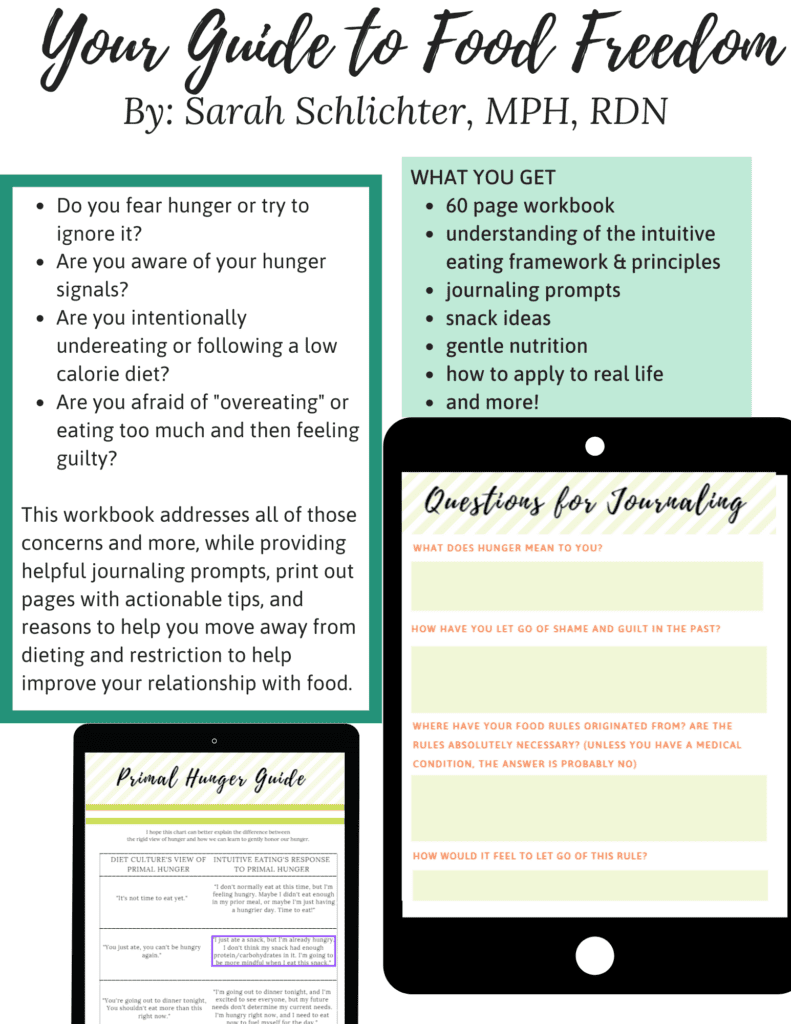


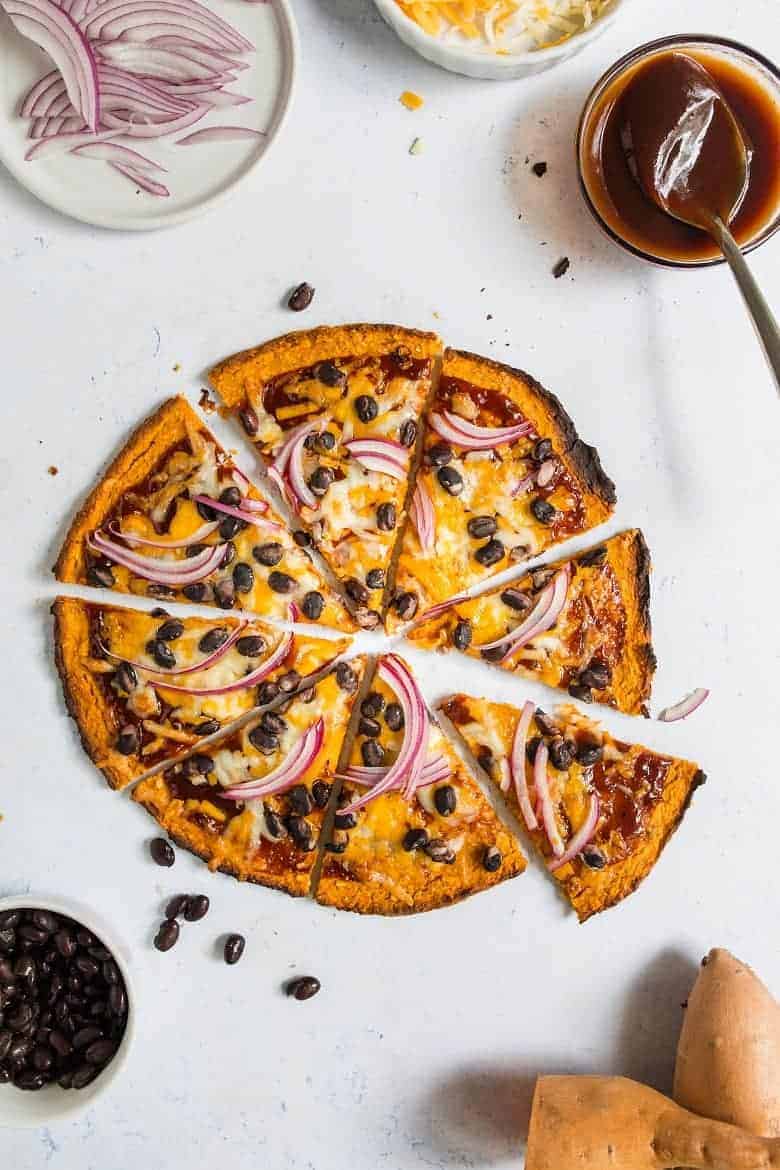
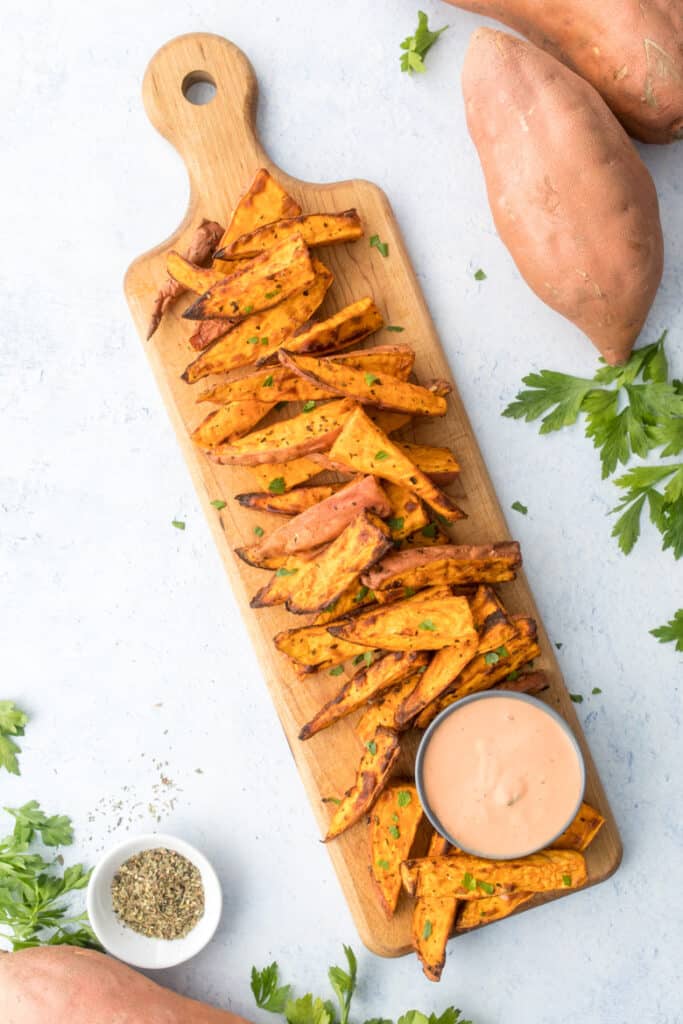

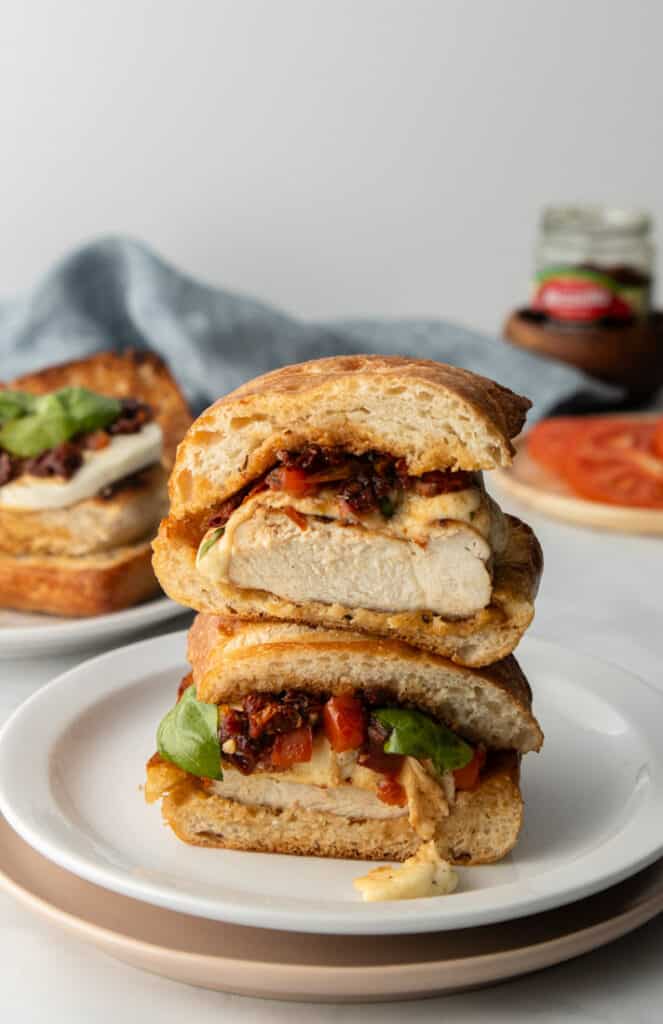
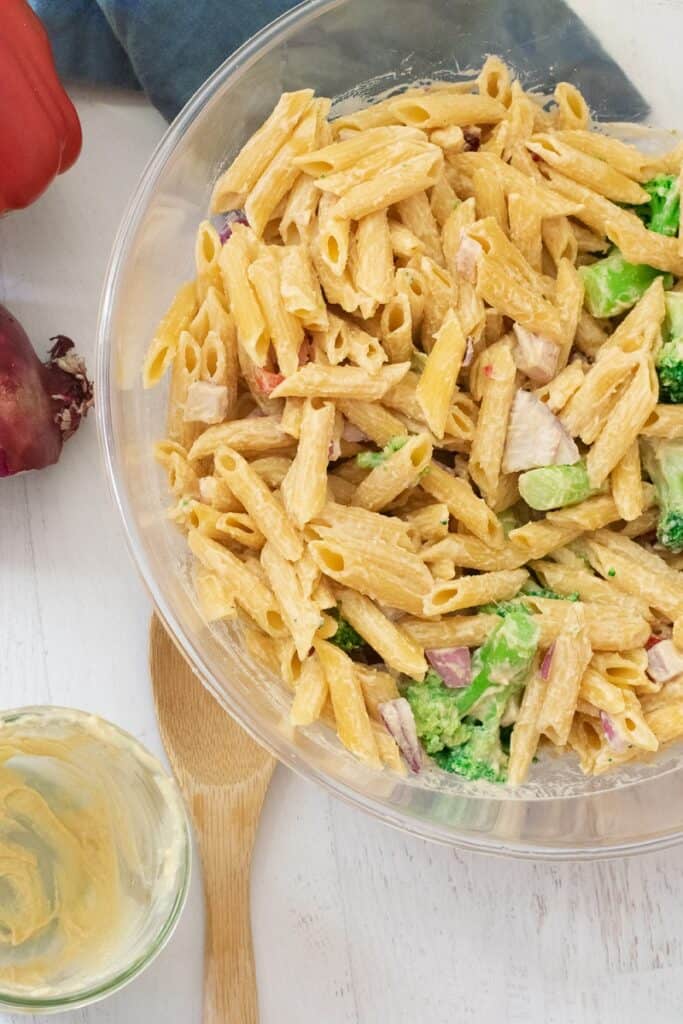



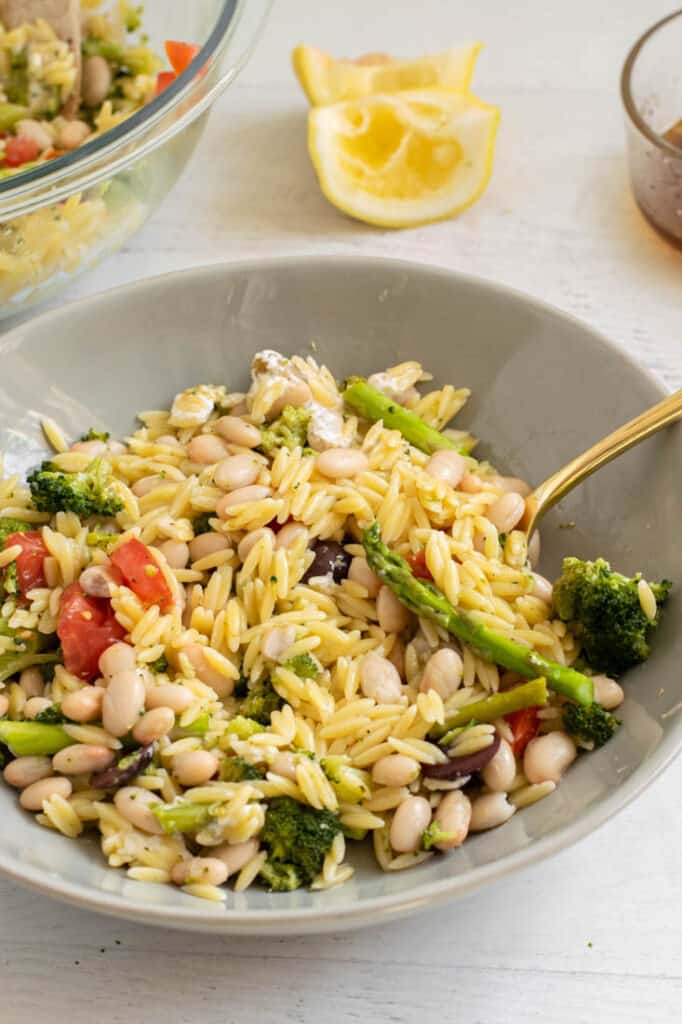

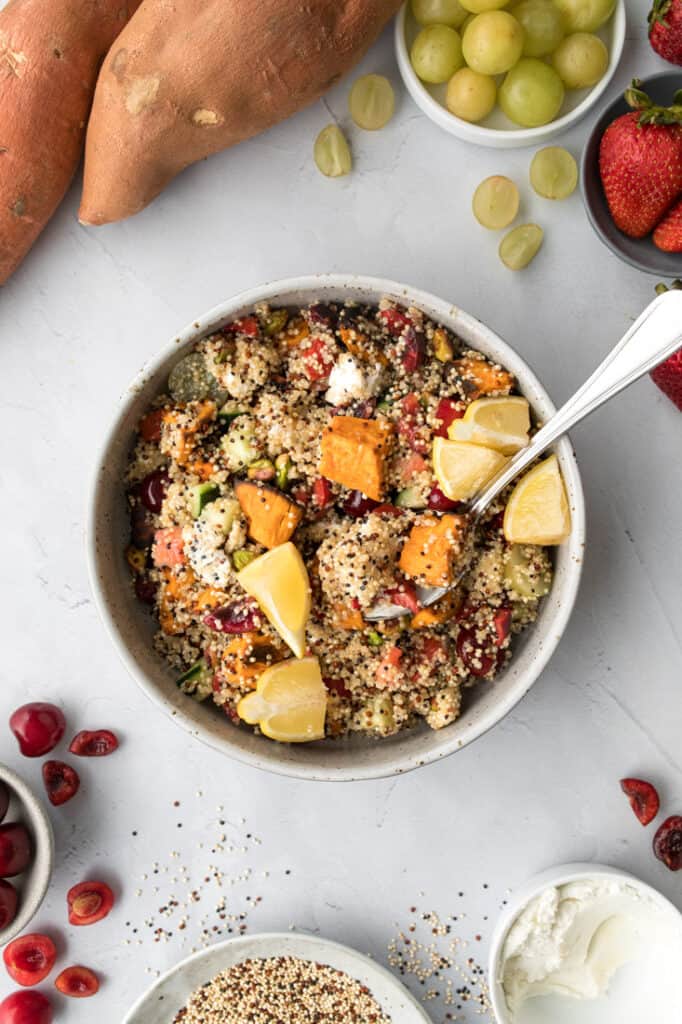

Like This Content?
Support Bucket List Tummy